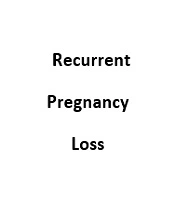Dear Editor,
We have read with great interest the recent article by Fazli and Ghorbian describing their study about the “Association study of non-coding RNA miR-499 and miR196a2 gene polymorphisms with the risk of idiopathic recurrent pregnancy loss” (1). We would like to thank the authors for sharing their valuable experience with non-coding RNA gene polymorphisms with the risk of idiopathic recurrent pregnancy loss (RPL). The authors found that the polymorphism of the miR-499 gene had a statistically significant association with the risk of RPL, unlike miR-196a2. They concluded that the miR-499 gene encoding region may be contributed as a genetic predisposition factor to RPL. However, the role of miR-499 and miR196a2 gene polymorphisms in patients with RPL remains unclear.
One of the hypotheses related to RPL is endothelial dysfunction. Moreover, this mechanism could cause placentation-related defects, complicated pregnancy, and probably cause cardiovascular disease in the future (2). Furthermore, we know that inflammatory responses play a critical role in the reproductive system and in RPL (3).
In 2007, Ji et al., reported the results of their study in which they described the miRNA expression signature in the vessel wall (4). Moreover, SNPs in miRNAs (miR-SNPs) can impact reactions and manage miRNA targets related to thrombosis and inflammation pathways in the circulation system (5). Some studies have showed that miRNA polymorphisms (rs11614913 T>C in miR-196a2 and rs3746444 A>G in miR-499) were associated with several endothelial-related diseases (6).
On the other hand, as mentioned above, the inflammatory process and deregulated cytokine production is often observed at the maternal-fetal interface in many cases of RPL (3). Additionally, the equilibrium between Th17 and T regulator (Tregs) is believed to be a prominent factor in the regulation of the immune system (7). Lee et al., reported that the imbalance between Th17 and Treg cells was associated with unexplained RPL pathogenesis (8). Figueiredo and Schumacher, in a review article, demonstrated that a potentially adverse role of Th17 cells in carrying on pregnancies. In addition, they reasoned that the normal human pregnancy is related to rising of the immunosuppressive Treg subset, and Tregs were perceived to play a crucial role in the maintenance of normal immune tolerance (9).
According to the mentioned contents, we hypothesized that miR-SNPs directly (inflammation) and indirectly (endothelial dysfunction) may lead to some molecular mechanisms of pregnancy complications like RPL through changing Th17 and Treg balance. Particularly, nowadays, miRNAs play significant roles in Th17 and Treg cells development, function, and balance in some immune-related diseases (10). Therefore, we suggest that Immune cell assessment, related microRNA profile, and genes polymorphism may serve as a prognostic biomarker for the treatment of patients with RPL and clarifying the role of microRNA polymorphism mechanisms in this complication.
